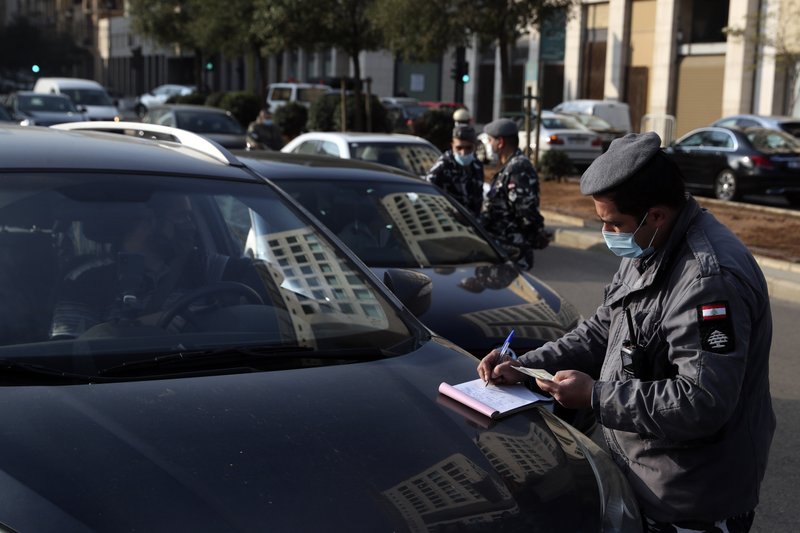

Lebanon began a 25-day nationwide lock down Thursday to limit the spread of the coronavirus as infections hit a record high in the tiny Mediterranean nation and patients overwhelmed the health care sector.
In Israel, the government prepared for a two-week shutdown as the country’s infection rate soared again.
The lock down in Lebanon is the third since the first case was reported in late February. It will close most businesses and limit traffic by imposing an odd-and-even license plate rule on alternating days. It also reduces the number of flights at the country’s only international airport.
A daily 6 p.m. to 5 a.m. curfew will be in effect as of Thursday until Feb. 1. Also on Thursday, Lebanon broke its single-day record of new coronavirus cases for the third straight day, with 4,774 reported infections over the past 24 hours.
It came after a holiday season in which tens of thousands of visitors flew into the country to celebrate Christmas and New Year’s. Lebanon also reported 16 new coronavirus deaths on Thursday, bringing the number of total cases in the small Mediterranean country to over 200,000, with more than 1,500 deaths.
“The best way to limit the spread is to stay at home,” outgoing Health Minister Hamad Hassan told the local LBC TV station.
In Beirut’s commercial Hamra district, many shops were closed as of morning hours. Police patrols drove by to make sure the lock down was implemented and motorists who violated the lock down orders were fined.
First responders in the country hit by a severe economic crisis say they have been transporting nearly 100 patients a day to hospitals, which are now reporting near-full occupancy, including in intensive care units.
Lebanon saw new infections start to increase during the summer, following a massive explosion in Beirut’s port in August that shook the city and its heath sector, killing over 200 people and injuring 6,000. August’s numbers increased by over 300% from July as a result and have since been climbing.
The new lock down comes as Lebanon was already struggling with an unprecedented economic and financial crisis that has caused it to default on debt and sent its local currency plunging, losing 80% of its value to the dollar.
The shortage of hard currency in Lebanon has severely curbed imports to the import-dependent country, including of medicine and medical supplies. Many medicines are missing at pharmacies as the crisis worsens.